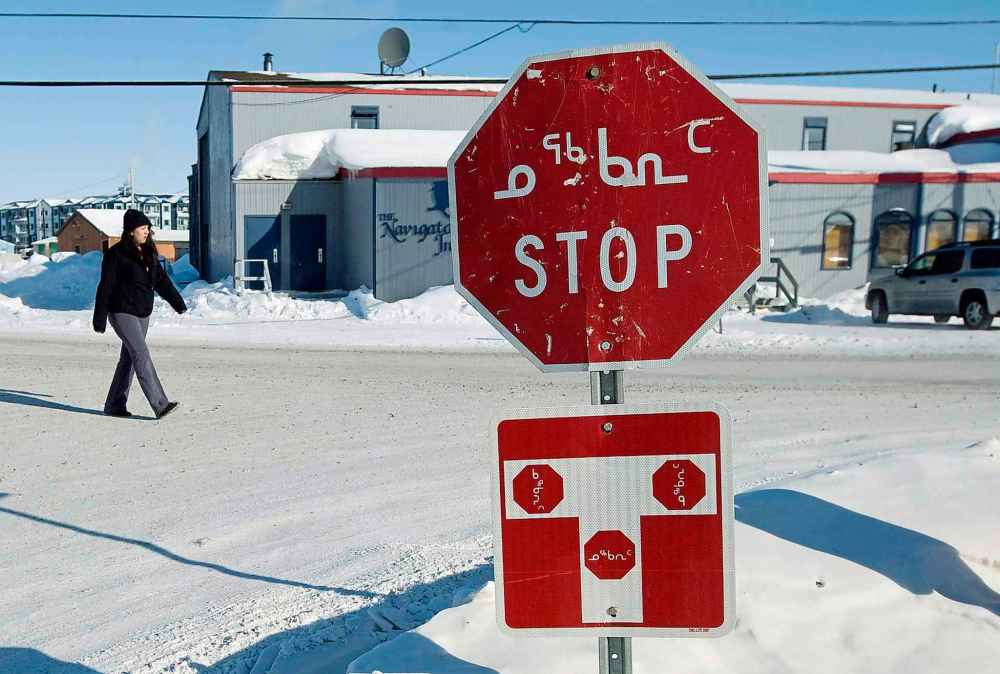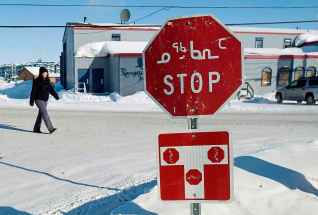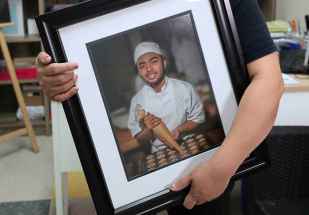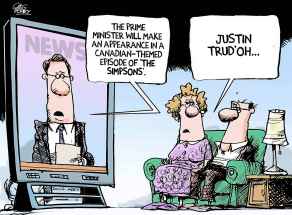Loss of Indigenous languages is Canada’s shame
Read this article for free:
or
Already have an account? Log in here »
To continue reading, please subscribe:
Monthly Digital Subscription
$0 for the first 4 weeks*
- Enjoy unlimited reading on winnipegfreepress.com
- Read the E-Edition, our digital replica newspaper
- Access News Break, our award-winning app
- Play interactive puzzles
*No charge for 4 weeks then price increases to the regular rate of $19.00 plus GST every four weeks. Offer available to new and qualified returning subscribers only. Cancel any time.
Monthly Digital Subscription
$4.75/week*
- Enjoy unlimited reading on winnipegfreepress.com
- Read the E-Edition, our digital replica newspaper
- Access News Break, our award-winning app
- Play interactive puzzles
*Billed as $19 plus GST every four weeks. Cancel any time.
To continue reading, please subscribe:
Add Free Press access to your Brandon Sun subscription for only an additional
$1 for the first 4 weeks*
*Your next subscription payment will increase by $1.00 and you will be charged $16.99 plus GST for four weeks. After four weeks, your payment will increase to $23.99 plus GST every four weeks.
Read unlimited articles for free today:
or
Already have an account? Log in here »
Hey there, time traveller!
This article was published 26/04/2019 (2422 days ago), so information in it may no longer be current.
All this past week, Indigenous leaders travelled to New York to represent their communities and present at the 18th United Nations Permanent Forum on Indigenous Issues.
Among these were Manitoba Métis, First Nations, and Inuit leaders, such as Liberal MP Dan Vandal and former NHL star Reggie Leach. Federal Minister of Indigenous-Crown Relations Carolyn Bennett also went. Local Inuit singer Kelly Amaujaq Fraser live tweeted her time at the Global Indigenous Youth Caucus.
The forum, which carries the theme of Traditional Knowledge: Generation, Transmission, and Protection, takes place until May 3 and features tens of thousands of Indigenous leaders from across the world speaking on such topics as land claims, environmental preservation, and law.

At the top of this list is Indigenous language revitalization, an issue so pressing that the United Nation declared 2019 the Year of Indigenous Languages.
Indigenous languages throughout the world are endangered. As of now, 96 per cent of the worlds 6,700 languages are spoken by three percent of the peoples. Four thousand of these languages are classified as Indigenous and estimates state that, due to the decision countries make to favour languages like English, Spanish and Mandarin, Indigenous language use is rapidly declining.
It is now estimated that one Indigenous language “dies” per week.
A language, of course, doesn’t die – the people who use it do.
Indigenous languages are the lifeblood of Indigenous cultures. It’s not that Indigenous nations end when their traditional language is no longer used, but a significant archive and way of understanding the world does.
In other words, you continue to be Anishinaabe without speaking Anishinaabemowin but your most important venue for understanding what being Anishinaabe is and means is lost.
Languages frame the way a people carry relationships with each other and the universe. Words embody the way history is understood and how law is interpreted. Languages form the basis for how a nation and a culture operates.
This is why many elders say: “If we lose our traditional languages we lose ourselves.”
So, it’s ironic that, at the opening of the forum, one of the most damning reports ever on Indigenous languages and education in Canada was released.
It’s damning not because Indigenous languages in this country are endangered. I’ve written about this fact many times. It’s damning because it’s about a language thought to be in a healthy state in a place governed by Indigenous peoples: Inuktut, the language spoken by Inuit.
Inuktut is the word people use to describe all Inuit languages, including Inuktut, Inuinnaqtun and Inuvialuktun, though Inuktut is the dialect primarily used in Nunavut.
All are under attack, says the report.
“Education in Nunavut has a history of cultural genocide, linguicide, econocide and historicide, and this continues today,” said Aluki Kotierk, president of Nunavut Tunngavik Incorporated (NTI), in a statement released at the opening of the UN Forum.
The education system in Nunavut is “criminally inadequate”, says Kotierk, and “constitutes cultural genocide.”
‘Education in Nunavut has a history of cultural genocide, linguicide, econocide and historicide, and this continues today’
– Aluki Kotierk, president of Nunavut Tunngavik Incorporated in a statement to the UN
These words carry weight. The NTI is the representative body of Inuit in Nunavut, the only Indigenous-controlled government in Canada. This organization oversees Inuit rights under the agreement that forms Nunavut and ensures that Canada’s commitments are fulfilled.
One of the commitments Canada carries is to provide education for all Inuit in Nunavut.
The report states that due to Canada’s “econocide” (making people poor), “historicide” (exclusion from history), “ecocide” (killing the environment) and “linguicide” (killing a language) of Inuit, Inuktut is being erased in favour of English and French language education.
The report pointed out that the federal government, for example, spends 44 times more per child in schools to teach French and English then Inuktut. This is most often done with arguments that these languages make Inuit young people “employable” with “opportunities.”
This isn’t the case, though. The government of Nunavut has a rule, for example, that eighty percent of government jobs must be filled by Inuit. One of the main qualifications to obtain these jobs: speaking Inuktut.
The report continues, pointing out that 80 per cent of teachers in Nunavut are non-Inuit and very few can teach in Inuktut. Inuktut teacher education programs are barely offered. This results in Inuktut being only used as a medium of instruction until Grade 3 – when it then disappears.
Inuktut now faces a dire, looming situation similar to most Indigenous languages in the south. Speakers are aging and students are actively discouraged to not learn and speak it due to being poor, seeing no relevancy, and having no venue to gain fluency and carry it on.
Inuktut, often regarded to be one of the three Indigenous languages that will continue into the next century (the other being Cree and Ojibway), is therefore now facing extinction.
This is where the “criminally inadequate” claim by comes in.
Canada is actually breaking the law in Nunavut. One of the primary legal clauses that created the territory when it was formed in 1993 was to develop and provide adequate education in Inuktut. Recent legislation has been drafted to mandate bilingual education but this has been put on hold due to a shortfall of teachers, inadequate funding, and a lack of curriculum and resources.
What’s really lacking is political will.
If Indigenous languages like Inuktut were deemed essential to Canada, there would be schools. There would be teachers. There would be books.
There would be speakers.
As the report identifies, learning a language also involves creating the conditions necessary to learn it. People can’t learn languages in inadequate buildings with unqualified educators and while they’re hungry.
So, Indigenous languages continue to face a struggle for their lives.
And their leaders are forced to turn to international forums like the UN and go to court to protect what should be considered the most Canadian of Canadian things: a language that is born, lives, and speaks primarily about this place.
Inuit culture is fine for Olympic logos and Canada’s 150th birthday, just don’t ask for help to save their languages.
That they have to fight for.
Niigaan Sinclair is Anishinaabe and is a columnist at the Winnipeg Free Press.

Niigaan Sinclair is Anishinaabe and is a columnist at the Winnipeg Free Press.
Our newsroom depends on a growing audience of readers to power our journalism. If you are not a paid reader, please consider becoming a subscriber.
Our newsroom depends on its audience of readers to power our journalism. Thank you for your support.










